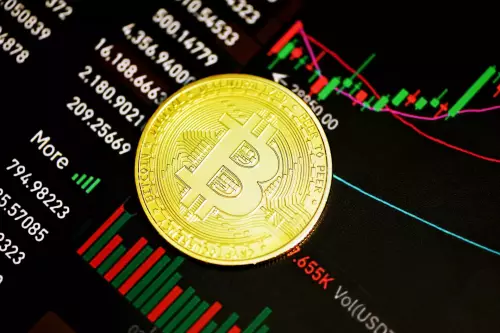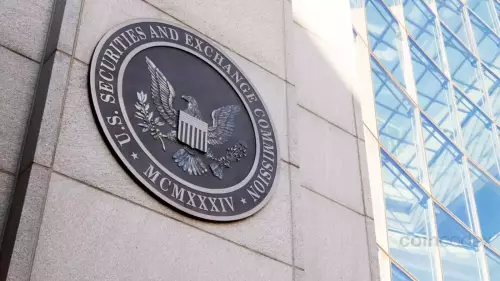 |
|
 |
|
 |
|
 |
|
 |
|
 |
|
 |
|
 |
|
 |
|
 |
|
 |
|
 |
|
 |
|
 |
|
 |
|
Cryptocurrency News Articles
BSE, Jetking, and Bitcoin Treasury: A Regulatory Tightrope Walk in India
Sep 29, 2025 at 03:45 pm
The Bombay Stock Exchange's rejection of Jetking Infotrain's listing due to Bitcoin treasury plans highlights India's cautious approach to corporate crypto adoption. Is this a roadblock or a call for regulatory clarity?

The world of 'BSE, Jetking, Bitcoin Treasury' is currently witnessing a fascinating tug-of-war between innovation and regulation, particularly in India. The Bombay Stock Exchange (BSE)'s recent decision regarding Jetking Infotrain has sent ripples through the crypto and finance sectors, highlighting the nation's cautious stance on digital assets.
Jetking's Bitcoin Ambitions Meet Regulatory Resistance
Jetking Infotrain, an IT training company, sought to list its shares on the BSE with plans to allocate a significant 60% of the raised funds into Bitcoin and other virtual digital assets (VDAs). This bold move, intended to build a Bitcoin-focused corporate treasury, was met with a firm rejection from the BSE. This decision, marking the first explicit denial of a listing over crypto treasury plans, serves as a clear signal of India's cautious stance on cryptocurrency investments through public fundraising.
India's Crypto Conundrum: Internal Profits vs. Public Funds
India doesn't prohibit companies from buying crypto with retained earnings, but regulators draw a line when it comes to using public capital raised through equity markets for crypto acquisition. The BSE's rejection reinforces the view that shareholder capital from public offerings shouldn't be primarily funneled into crypto investments. Regulators worry about exposing retail investors to the volatility and risks of VDAs without a comprehensive framework for investor protection.
This creates a "regulatory void," where companies face uncertainty about how to structure digital asset treasuries while remaining compliant. The core issue is the speculative nature of cryptocurrencies and the potential risks to investors. While retail crypto trading is booming in India, corporate treasuries funded by public raises are off-limits, per current norms.
The Road Ahead: Appeal and Regulatory Clarity
Jetking is reportedly considering an appeal with the Securities Appellate Tribunal (SAT). This case could set a crucial precedent for how corporate crypto strategies are treated in India. Without updated regulations or specific guidelines from SEBI, companies attempting similar strategies are likely to encounter resistance.
The outcome of a potential SAT appeal will be closely watched by industry participants, policymakers, and global observers, as it may shape the future trajectory of how corporate crypto adoption is governed in India. Supporters argue that enabling companies to raise funds for digital asset treasuries could strengthen India’s competitiveness in the global digital economy.
Meanwhile, Across the Pond...
While India navigates its regulatory landscape, other countries are making strides in the Bitcoin treasury space. For instance, B HODL Plc, a UK-listed company focused on Bitcoin accumulation, recently added 12 bitcoins to its treasury, bringing its total holdings to 112 BTC. This move places B HODL among the top 100 Bitcoin treasury firms globally.
Personal Musings: A Call for Balanced Regulation
It seems like India is walking a regulatory tightrope. On one hand, protecting investors from the volatility of crypto is paramount. On the other hand, stifling innovation could hinder India's potential in the global digital economy. A balanced approach, with clear guidelines and investor protection measures, could be the key to unlocking the benefits of digital assets while mitigating the risks.
It's fascinating to watch these developments unfold. Will Jetking's appeal lead to a shift in regulatory thinking? Will India find a way to embrace corporate crypto treasuries responsibly? Only time will tell. But one thing's for sure: the intersection of BSE, Jetking, and Bitcoin Treasury is a space to watch closely!
Disclaimer:info@kdj.com
The information provided is not trading advice. kdj.com does not assume any responsibility for any investments made based on the information provided in this article. Cryptocurrencies are highly volatile and it is highly recommended that you invest with caution after thorough research!
If you believe that the content used on this website infringes your copyright, please contact us immediately (info@kdj.com) and we will delete it promptly.






























































